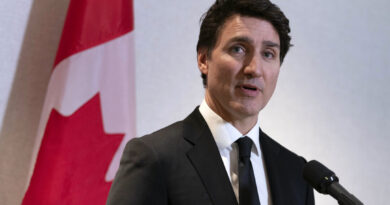Security Chiefs Urge Big Tech to Limit Encryption in the Name of National Security
Australian law enforcement has escalated efforts to combat online extremism following two stabbing incidents in Sydney.
The top domestic spy chief and police commissioner in Australia will urge Big Tech companies to slow down the deployment of more advanced encryption to help combat online extremism.
In an upcoming speech at the National Press Club in Canberra, Mike Burgess, the director-general of the Australian Security and Intelligence Organisation (ASIO), equivalent to the FBI, will caution that widespread end-to-end encryption on messaging apps could impede criminal investigations.
Various messaging apps and websites, such as WhatsApp, Signal, and ProtonMail, use encryption to secure information exchanged between users by scrambling the data for transmission and unscrambling it for the authorized recipient.
‘Encryption is Unaccountable’
Mr. Burgess will not demand the cessation of encryption implementation but will urge Big Tech firms to slow it down.
“If the threat, evidence, safeguards, and oversight justify us obtaining a warrant, then these should also be sufficient for the companies to assist us in executing that warrant. To make encryption accountable,” Mr. Burgess will say.
“Without their collaboration in extremely limited and strictly controlled circumstances, encryption remains unaccountable. Essentially, unaccountable encryption acts as a secure hideout for terrorists and spies, a protective space where they can scheme and plan.
“Consider a scenario where violent extremists could gather in a section of a city with privacy and immunity. Picture them using this safe space to discuss terrorism, sabotage, and propagate hatred towards various communities. Now envision security services and police being blocked from entering that area to investigate and respond.”
The director-general will also reveal multiple extremist networks believed to be utilizing encrypted services.
“They leverage an encrypted chat platform to communicate with international extremists, sharing despicable propaganda, exchanging tips on homemade weapons, and discussing strategies to incite racial conflict,” he will state.
“Having legal and targeted access to extremist communications would be much more effective and efficient, providing real-time visibility into their activities.”
On the other hand, Australian Federal Police (AFP) Commissioner Reece Kershaw will criticize social media platforms for “failing to extinguish social unrest.”
“Instead of extinguishing the sparks on their platforms, their nonchalance and defiance are fueling the fire,” he will remark.
“Looking at the misinformation and disinformation stemming from two alarming incidents in Sydney this month, and how that social upheaval spread globally, we witness the repercussions of such indifference and defiance.”
Musk Stands Firm Against Authorities
Mr. Kershaw’s comments come amid an ongoing dispute and an imminent legal battle between tech mogul Elon Musk and Australian authorities.
Mr. Musk has rebuffed a directive from eSafety Commissioner Julie Inman Grant to globally eliminate all content related to the alleged stabbing of an Assyrian Christian bishop in western Sydney, deemed a “terrorist incident” by authorities.
X has removed content in Australia but has resisted the idea of global content removal, citing jurisdictional limitations.
However, on April 22, the Federal Court issued a two-day injunction against the social platform X for the removal of related content worldwide.
Additionally, Australian politicians have issued strong criticism against the tech entrepreneur and Tesla founder.
“The eSafety commissioner is simply fulfilling her duty to safeguard the interests of Australians.”
‘No Absolute Right to Privacy’: AFP
Meanwhile, Mr. Kershaw will suggest that Big Tech companies should refrain from transitioning to end-to-end encryption “until they can ensure that their technology prevents online crime instead of facilitating it.”
“We acknowledge the role that technologies like end-to-end encryption play in safeguarding personal data, privacy, and cyber security, but there is no absolute right to privacy,” Mr. Kershaq will state.
“People have the right to privacy just as they have the right not to be harmed. People expect their privacy to be safeguarded just as they expect law enforcement to act once a crime has been committed against them or a loved one. This expectation includes the ability to respond and bring offenders to justice.”
Andy Yen, the CEO of Proton, has previously stated that he will not comply with any attempts to breach user encryption.
Australia Collaborating Internationally
Communications Minister Michelle Rowland mentioned that the government is collaborating with regulators and authorities in other countries to address the issue of encrypted platforms being used for extremist purposes.
“National security agencies are deeply concerned about acquiring the necessary tools to fulfill their duties and keep Australians safe,” she informed ABC radio.
“These are intelligent individuals working with agencies and their international counterparts to take the necessary steps to identify emerging threats and bring perpetrators to justice.”





